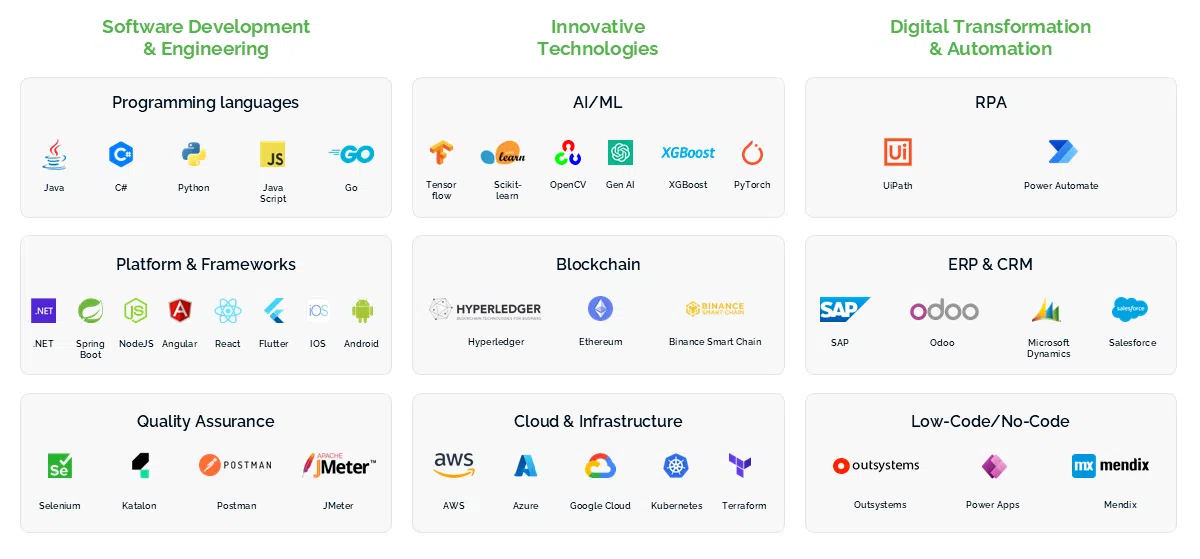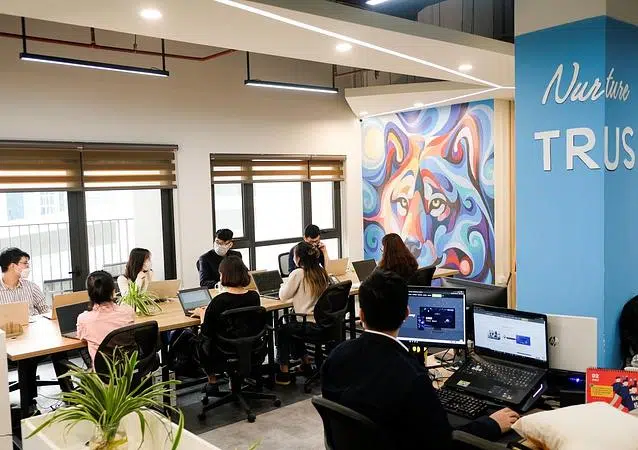How to Choose the Right Software Development Company: 10-Step Guide for 2025
Choosing a software development company is one of the most critical decisions you’ll make when turning your digital vision into reality. Whether you’re launching a new product, digitizing internal operations, or scaling your infrastructure, the right partner can make all the difference—and the wrong one can cost you time, money, and trust.
This guide outlines 10 essential steps to help you confidently select the software development company that best fits your business goals, technical needs, and long-term vision.
Also check out our related guides on software development trends, software project estimation, and software development models.
Step 1: Define Your Project Goals and Timeline
Start with clarity. Outline what you want to build, what business problems it solves, and what success looks like. Is your goal to launch an MVP in 3 months, or to modernize a legacy system? Establish your priorities: speed, budget, scalability, or innovation.
Deliverables:
-
Clear project scope
-
Measurable KPIs
-
Tentative timeline
Self-check questions:
-
Have you prioritized must-have vs. nice-to-have features?
-
What constraints (time, budget, team) do you need to communicate upfront?
Step 2: Choose Your Engagement Model (In-house, Outsource, or Hybrid)
Before you begin your search, define the type of collaboration you want. Will you build an in-house team, augment your team with outsourced talent, or fully delegate development?
| Model | Pros | Cons |
|---|---|---|
| In-house | Full control, aligned culture | Expensive, slow to scale |
| Outsourced | Global talent, flexible cost | Timezone/communication challenges |
| Hybrid | Balanced ownership & flexibility | Requires strong coordination |
Tip: Startups often benefit from outsourcing or hybrid, while enterprises may combine both depending on budget and control preferences.
Step 3: Research and Shortlist Potential Vendors
Use trusted platforms like Clutch, GoodFirms, LinkedIn, or your professional network to compile a list of potential partners.
Checklist:
-
Do they have experience in your industry?
-
Do they work with companies your size?
-
Are they technical specialists in your required stack?
Red flag: Vendors with only generic testimonials or lack of recent work examples.
Case insight: A startup in healthtech found success by shortlisting only firms that had published case studies in HIPAA-compliant environments.
Step 4: Evaluate Domain Expertise and Technical Stack
Industry knowledge is a key differentiator. A company with experience in fintech, healthcare, or logistics understands your challenges and can bring strategic input beyond code.
Review:
-
Case studies or client stories
-
Technologies used
-
Certifications or regulatory compliance (HIPAA, GDPR, ISO, etc.)
Example: If you’re a logistics SaaS company needing real-time tracking, vendors with IoT and fleet integration experience are a better fit than generic web app developers.
Don’t forget to consider their familiarity with software compliance standards relevant to your domain.

Savvycom’s Tech Stacks
Step 5: Review Portfolios, Testimonials, and Case Studies
Past performance is the best predictor of future success. Look for:
-
Documented projects similar to yours
-
Results achieved (e.g., reduced time-to-market, increased efficiency)
-
Independent client reviews (Clutch, GoodFirms)
Ask yourself:
-
Are they showing real metrics or just buzzwords?
-
Can I talk to one of their past clients directly?
Also explore their software audit capabilities to ensure their processes align with best practices.
Step 6: Understand Development Process & Tools
A mature software development partner should have a clear process. Ask about:
-
Agile, Scrum, or Kanban methodologies
-
Tools for project management (Jira, Trello)
-
Communication platforms (Slack, Zoom, Teams)
Do they offer regular sprint reviews and proactive status updates? Transparency is non-negotiable.
Pro Tip: Request a sample project board or previous sprint report to assess their operational maturity.
Understanding their software development process can also reveal how disciplined and adaptable their team really is.
Step 7: Clarify IP Protection, NDA, and Security Protocols
Your ideas are your IP—make sure they stay that way. Verify:
-
Signed NDA before technical discussions
-
Ownership of source code and deliverables
-
Data encryption standards
-
Secure development environment
Common mistake: Not owning the source code post-delivery, especially when using a white-label dev agency.
Step 8: Understand Pricing Models and Contracts
Cost is more than just a number. Clarify:
-
Fixed Price: Best for short, well-defined projects
-
Time & Materials: Ideal for evolving requirements
-
Dedicated Team: For long-term collaboration
Decision tip: If scope is likely to change, T&M is safer. If you’re building an MVP with fixed requirements, Fixed Price can be cost-efficient.
Step 9: Assess Communication and Cultural Fit
Communication gaps can derail projects. Evaluate:
-
English proficiency and timezone alignment
-
Responsiveness in early conversations
-
Cultural compatibility and attitude toward feedback
Checklist for cultural fit:
-
Are they proactive or reactive?
-
Do they speak “product” or only “tech”?
-
How do they handle feedback loops?
Step 10: Run a Pilot or Request a Workshop
Before signing a long-term contract, validate the collaboration with a paid pilot or technical workshop. This lets you assess:
-
Technical skills
-
Speed of delivery
-
Team chemistry
Example: A SaaS company reduced risk by starting with a 3-week design sprint + clickable prototype before moving to development.
Bonus Section: Common Mistakes to Avoid
Even with a checklist, many companies fall into traps:
-
Choosing based on price alone: Cheap often leads to higher long-term costs.
-
Skipping discovery phase: Leads to mismatched expectations.
-
Not checking communication cadence: Weekly check-ins are a must.
-
Relying only on testimonials: Ask for direct client contacts.
-
Assuming all agencies follow the same dev process: Ask to see it.
Why Savvycom Is The Reliable Choice For Your IT Partnership?
Savvycom is a software development company operating across Vietnam, Thailand, Australia, and the US since 2009. We specialize in assisting startups and businesses of all sizes in streamlining processes, enhancing client engagement, and boosting efficiency through robust software solutions.
Our team boasts extensive experience across various industries, including Healthcare, FinTech, Logistics, Education, and more. Cleveroad excels in modern and cutting-edge technologies such as cloud development, blockchain, smart contracts, Artificial Intelligence (AI), Machine Learning (ML), and Internet of Things (IoT).

Professional team with experience in software development at Savvycom
With a workforce of over 700 in-house software engineers, 64% of whom are seasoned senior and middle-level experts, we’ve earned recognition as an Apple Select Tier Partner. We prioritize transparency and effective communication, ensuring clients are informed and involved at every stage of development. We maintain constant contact, promptly respond to project changes, and hold regular meetings to discuss progress.
We offer flexible cooperation models tailored to your needs, including Staff Augmentation, Dedicated Teams, Time & Material, and Fixed Workscope. Our passionate experts are deeply committed to each project’s success, investing themselves fully for a successful release.
If you’re looking for software companies in Vietnam, Savvycom brings international quality with local advantage. Don’t hesitate to reach out and discuss your software idea with us!
FAQs
1. What is the best country to outsource software development to?
Countries like Vietnam, Ukraine, and Poland offer a strong talent pool, competitive rates, and high English proficiency.
2. How much does it cost to hire a software development company?
Costs vary depending on project scope, team size, and region. Time & Materials ranges from $25–80/hour in Asia to $100–200/hour in the US/EU.
3. Should I choose a local or offshore vendor?
It depends on your priorities. Offshore is more cost-effective; local is better for face-to-face collaboration.
4. What should I ask a potential development partner?
Ask about past projects, team size, methodology, communication tools, IP protection, and post-launch support.
5. How long does it take to build a custom application?
From 3 to 12 months depending on complexity. Start with an MVP and iterate.
Concluding Thoughts
In the quest to choose the perfect software development company, the road is lined with thorough research and thoughtful deliberation. It’s crucial to keep in mind that the ideal partner goes beyond mere technical skills; they should also share your vision and facilitate effective collaboration. Utilizing visuals and infographics can help simplify intricate decisions, while real-life case studies provide depth and credibility to your decision-making process.
As you draw your conclusions, consider the significance of industry experience, technical proficiency, communication strategies, team involvement, and development methodologies. These pillars form the foundation for your project’s success, ensuring a smooth and fruitful journey from start to finish.
Savvycom – Your Trusted Tech Partner
Priding itself as Asia’s leading software outsourcing company, Savvycom has been harnessing the power of digital technologies since 2009 to support business growth across a variety of industries. We can help you build high-quality software solutions and products, as well as deliver a wide range of related professional software development services.
Savvycom is right where you need. Contact us now for further consultation:
- Phone: +84 24 3202 9222
- Hotline: +84 352 287 866 (VN)
- Email: [email protected]




